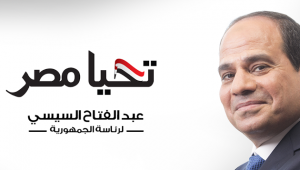As Egypt’s former defense chief Abdel Fattah al-Sisi approaches his expected presidential victory, he faces a myriad of issues that threaten his office. While many claim the Muslim Brotherhood (MB) poses the largest threat to Egypt, the country’s economy also illustrates worrisome concerns. For the past three years, the Egyptian economy has been struggling since the country emerged from the post-Mubarak revolution. Public debt has been aggregating, businesses and households face harsh conditions due to daily power blackouts, and the country’s energy shortfall will be exacerbated with the coming summer months. Unemployment and economic stagnation has continued to plague the country since Mubarak was deposed.
 With the current unemployment rate standing at 14%, with a number nearly double that among the young section of society, the country is facing a restless youth who is disenfranchised with the current course of the economy. Frequent labor strikes further cripple already paralyzed sectors such as public transportation and healthcare. With a mild growth rate around 2.1% for the last fiscal year, the country shows bleak prospects of growth. One of the country’s longest financial bases, tourism, has seen a precipitous drop in comparison to its pre-2011 heights. Wary international investors, halved foreign currency reserves, and a strained national budget continue to plague the country’s prospect for future growth.
With the current unemployment rate standing at 14%, with a number nearly double that among the young section of society, the country is facing a restless youth who is disenfranchised with the current course of the economy. Frequent labor strikes further cripple already paralyzed sectors such as public transportation and healthcare. With a mild growth rate around 2.1% for the last fiscal year, the country shows bleak prospects of growth. One of the country’s longest financial bases, tourism, has seen a precipitous drop in comparison to its pre-2011 heights. Wary international investors, halved foreign currency reserves, and a strained national budget continue to plague the country’s prospect for future growth.
The country’s energy crisis continues to remain a central issue that affects all strata of Egyptian society. International oil and gas companies conducting business with Egypt are publicly lamenting over the due revenues they are owed by the Egyptian government and promised allotments of natural resources. Frequent electricity blackouts incited public anger, contributing to the large demonstrations that led to Morsi’s removal. The political blowback from a recurrence of such blackouts could be devastating for Sisi. The lackluster implementation of energy conservation on a national level has exacerbated the country’s woes.
Sisi has been cognizant of the country’s plight, as he has devoted significant airtime on the country’s TV networks addressing these issues. Despite this, he has expressed reservations in making considerable cuts to food and fuel subsidies that cost the country 28.5 billion USD annually or one-fifth of the national budget. Disregarding international financial institutions’ calls for such an austerity plan, Sisi asserted that the standard of living must rise before he would decisively cut subsidies. Instead, Sisi has relied on enormous financial assistance packages from Persian Gulf states such as Saudi Arabia, which have donated 20 billion USD since last July to prop up Egypt’s floundering economy.
Assuming that he is elected, Sisi will have to reassure the domestic and international community that his ascension to power was not a coup, but a reaction to popular demand. By hosting a free and fair election and garnering sufficient voter turnout, Sisi will be able to buttress his credibility and legitimacy for the future. Simultaneously, Sisi must combat the vexing challenges of the security environment that has become increasingly volatile since Morsi’s ousting last August, evident by the uptick in terrorist attacks on police and military personnel throughout the country and in the Sinai Peninsula. The security situation is reflective of the political realm, which remains one of the most intractable areas in the country, with supporters of the establishment remaining in a hotly contested conflict with the extremist elements of MB. The polarized nature of the conflict has alienated the moderate elements from both parties, increasingly pushing the prospect of reconciliation towards a zero-sum outcome. However, President Sisi’s broad support will afford him a few years of good will, which he could utilize to show conciliatory political gestures towards the opposition that accepts the constitution and non-violent political action, as he establishes a stable security situation on the ground. The full implementation of recent efforts embodied in the country’s new constitution, such as equal protection under the law, individual freedoms, social welfare and economic rights, and government transparency are imperative to laying the groundwork for the country’s future.
As Sisi assumes office, it would be wise for Egypt to emulate its Arab Spring neighbor, Tunisia, who has been the region’s true success story. Islamists, liberals, and moderates were able to come to a consensus despite their reservations and agree to a constitution that protects the rights of all citizens. The onus now lies with the extremist elements of the MB to cease their violent activity and fall into the mainstream political fold of the country that has taken the first steps of adopting the constitution with inclusive rights for all. Only then will Egypt be able to address its economic grievances head-on.
The post Sisi’s Egypt appeared first on American Security Project.


